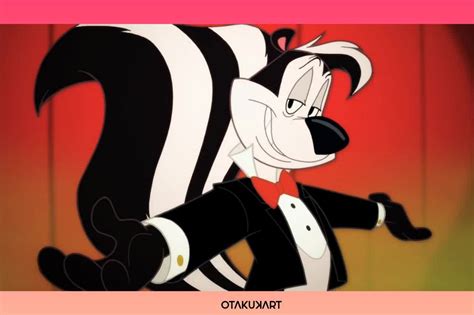Decoding the Mind of Pepe: A Deep Dive into the Internet's Most Controversial Frog

`markdown
Preview: Explore the complex and often misunderstood world of Pepe the Frog, from its innocent beginnings as a comic character to its controversial adoption by various online communities. Understand the meme's evolution, its diverse interpretations, and its lasting impact on internet culture.
Decoding the Mind of Pepe: A Deep Dive into the Internet's Most Controversial Frog
The mind of Pepe is a fascinating and complex subject, reflecting the evolving and often unpredictable nature of internet culture. Starting as a harmless cartoon character, Pepe the Frog has become a symbol embraced, co-opted, and misinterpreted by various online communities. This article aims to delve into the intricacies of Pepe's journey, exploring its origins, transformations, and the controversies it has stirred.
The Genesis of Pepe: From Comic Strip to Viral Meme
Pepe the Frog was created by artist Matt Furie as a character in his comic series Boy's Club in 2005. Initially, Pepe was just one of several laid-back roommates, enjoying simple pleasures. A specific panel, featuring Pepe with the phrase "Feels Good Man," propelled him to internet fame. This early iteration of Pepe was largely apolitical and widely used to express feelings of contentment and satisfaction.
Origin: Boy's Club* comic series by Matt Furie
- Initial Purpose: Representing simple pleasures and contentment
- Key Phrase: "Feels Good Man"
- Evolution: From a single panel to a widely shared image macro
- Adaptation: Users began creating variations of Pepe to fit different contexts.
- Diversity: Pepe represented various emotions, situations, and cultural references.
- Blank Canvas: Users projected their own interpretations and experiences onto Pepe.
- Appropriation: Use by certain groups during the 2016 US Presidential election.
- Association: Linkage with hate speech and extremist ideologies.
- Controversy: Public debate and backlash against the use of Pepe as a hate symbol.
- Furie's Response: Matt Furie's attempt to reclaim Pepe and disassociate it from hateful symbolism.
- Symbolism: Represents the evolution and adaptability of memes.
- Cautionary Tale: Highlights the potential for misuse and co-option of online symbols.
- Creativity: Reflects the dynamism and creativity of internet communities.
- Multifaceted: Symbol of innocence, creativity, controversy, and co-option.
- Reflection: Represents the best and worst aspects of internet culture.
- Insights: Offers valuable lessons about online communication and community.
The Metamorphosis of Pepe: Adoption and Diversification
As Pepe the Frog spread across the internet, users began to modify and adapt the character to fit various contexts. This period saw the creation of countless Pepe variations, each representing different emotions, situations, and even cultural references. Pepe became a blank canvas onto which users projected their own interpretations and experiences.
The Dark Turn: Controversy and Misinterpretation
Unfortunately, the mind of Pepe took a darker turn during the 2016 US Presidential election. Pepe was appropriated by certain groups and associated with hate speech and extremist ideologies. This led to significant controversy and public debate, ultimately causing Matt Furie to attempt to reclaim his creation and disassociate it from hateful symbolism.
The Enduring Legacy: Pepe's Place in Internet Culture
Despite the controversies, Pepe the Frog remains a significant figure in internet culture. He represents the power of memes to evolve, adapt, and take on different meanings over time. Pepe's story serves as a cautionary tale about the potential for online symbols to be co-opted and misused, while also highlighting the creativity and dynamism of internet communities.
Pepe's Impact on Online Communication
Pepe, in all his forms, has undeniably influenced online communication. He's a shortcut for expressing complex emotions, a visual shorthand understood by millions. He's a testament to the power of shared symbols in the digital age.
Reclaiming Pepe: A Continual Effort
While the association with negativity persists for some, efforts to reclaim Pepe and restore its original, innocent image continue. Artists, meme creators, and ordinary internet users actively promote positive and inclusive interpretations of the frog.
[Link to relevant article on meme culture]
Understanding the Mind of Pepe: Key Takeaways
Understanding the mind of Pepe requires acknowledging its multifaceted nature. He is simultaneously a symbol of innocence, creativity, controversy, and co-option. He represents the best and worst aspects of internet culture, and his story offers valuable insights into the dynamics of online communication and community.
Frequently Asked Questions about Pepe the Frog
Q: Who created Pepe the Frog?
A: Pepe the Frog was created by artist Matt Furie as a character in his comic series Boy's Club.
Q: What was Pepe originally used for?
A: Originally, Pepe was used to express simple pleasures and feelings of contentment, particularly with the phrase "Feels Good Man."
Q: Why did Pepe become controversial?
A: Pepe became controversial due to his appropriation by certain online groups who associated him with hate speech and extremist ideologies, particularly during the 2016 US Presidential election.
Q: Is Pepe inherently a hate symbol?
A: No, Pepe is not inherently a hate symbol. His association with hate speech is a result of co-option and misuse by specific groups. Efforts are ongoing to reclaim Pepe's original, innocent image.
Q: What is Matt Furie doing about the controversy surrounding Pepe?
A: Matt Furie has actively worked to disassociate Pepe from hateful symbolism and reclaim his creation through legal action and artistic endeavors.
Q: What is the legacy of Pepe the Frog?
A: Pepe's legacy is complex. He represents the power of memes to evolve and adapt, the potential for online symbols to be co-opted and misused, and the dynamism of internet communities. He is a cautionary tale and a symbol of the ever-evolving landscape of internet culture.
`





